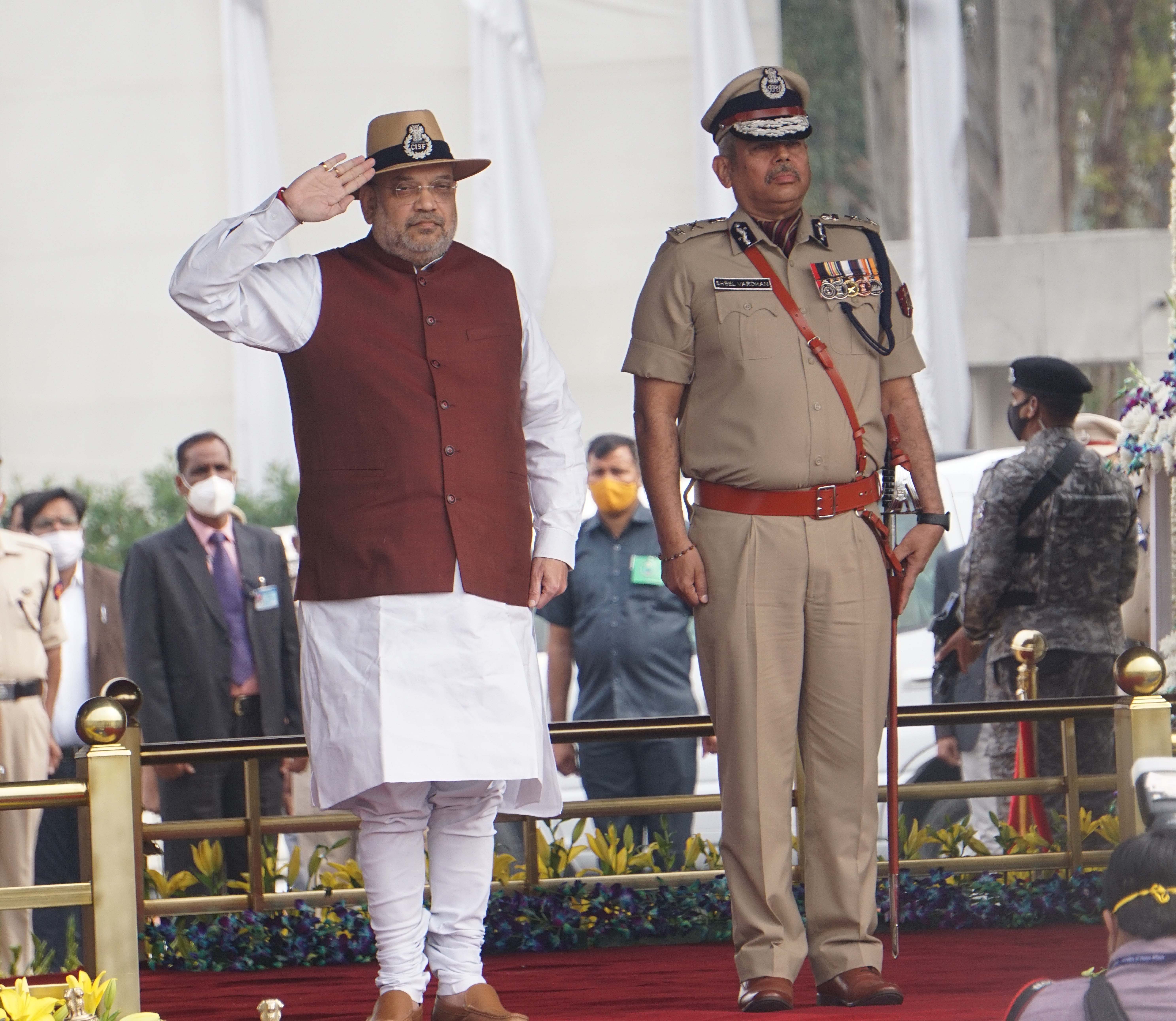
GHAZIABAD (UP), Mar 6:
Union Home Minister Amit Shah on Sunday pitched for a “hybrid” security model where the CISF could train and certify private security agencies so that the latter can take over the task of efficiently guarding various kinds of industrial and manufacturing units in the country.
He said the Central Industrial Security Force (CISF), raised in 1969, worked like a silent “karmayogi” to ensure the country’s industrial development and secured the private manufacturing production units as India rode on to become a USD 2.5 trillion-strong economy.
Without elaborating, Shah said the about 1.64-lakh-personnel-strong force could soon see an enhancement in its role.
He was speaking at the 53rd Raising Day celebrations of the CISF here. “The work of private security agencies is rapidly increasing…We have brought out rules and regulations for their functioning. Can the CISF take the responsibility of training these private security agencies?” Shah asked. “Can we prepare some model for say, a private manufacturing unit, that employs between 1,000 and 5,000 staff? We will have to enhance the efficiency of private security agencies as the CISF alone cannot render the task of securing the industrial and manufacturing units of the country,” he said. The home minister said he believes that it is part of the CISF’s work to ensure that all the agencies involved in industrial security are efficient like it in securing the sector. A hybrid model of security, where the CISF will prepare the strategy and where both private and the CISF personnel can work, can be developed so that the paramilitary force can gradually come out and hand over these tasks to private security agencies, he added.
The force, at present, guards a total of 354 units in the government and private sectors, working in domains such as oil, power, information technology, civil airports, Delhi Metro, aerospace and nuclear, among others. Shah asked the force to “aggressively” enhance its approach in guarding private sector entities, saying the present 11 being secured by it is less.
The Infosys campuses in Mysuru, Bengaluru and Pune, the Patanjali Food and Herbal Park in Haridwar and the Reliance refinery in Gujarat’s Jamnagar are among the private sector establishments under the CISF cover at present.
Shah also asked the force to prepare a 25-year road map so that it can emerge as a “result-oriented” security agency by the time India enters the 100th year of its Independence.
Keeping in view the “increasing” drone threat to industrial units along sea ports and the land border, he asked the CISF to collaborate with agencies like the Defence Research and Development Organisation (DRDO) and the Border Security Force (BSF) to prepare an effective counter-technology against this menace.
He said the CISF personnel deployed at various airports were also part of “Operation Ganga”, under which Indians are being evacuated from war-hit Ukraine on special flights. (PTI)
“I find the CISF personnel welcoming the Indians with very polite and nice behaviour,” the home minister said.
He also urged the CISF to explore ways so that the representation of women personnel in the force could be enhanced.
Speaking at the event, CISF Director General (DG) Sheel Vardhan Singh said the force can play a big and important role in the training and certification of the private security agencies in the country, which are currently functioning in an unorganised manner.
He said the force is ready to play the role of a “specialist and integrated” security agency in the airport and seaport cargo, counter-drone, marine and rapid transport system domains.
The CISF currently guards 65 civil airports in the country, apart from securing a number of vital infrastructure in both the government and private domains. It functions under the Union home ministry. (PTI)

